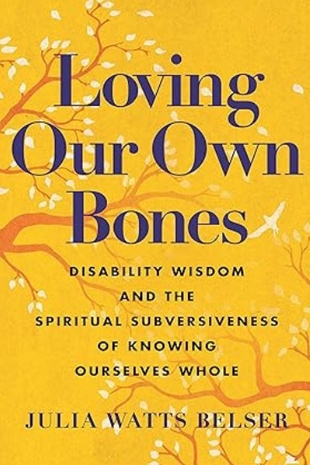This book is an extended reflection on disability, its politics, and how disability and spirituality intersect.
Belser — a rabbi, scholar, and activist for disability justice — is sane, wise, and witty. She begins: “After synagogue one day, a visitor popped the question. 'What’s wrong with you?' she asked, as her eyes flicked from my face to my wheels.” Belser answered, “I have a disability,” but then she wants to change how you hear that word.
Disability is too often defined as a medical situation, and when that happens, the story of someone’s life is defined by how one’s body or mind fails to “measure up to certain expectations,” writes Belser. She tells a different story in these pages about “social attitudes, architectural barriers, and cultural notions of normalcy that value certain modes of being over others.”
Belser also highlights her joy — discovered in disability communities and disability kinship — explaining that her life is not defined by pain or inconvenience but is often “flush with exquisite, unexpected joy.”
Readers will find excellent discussions of essential topics related to disability, including ableism (“the social-political dimension of disability”) and challenges to traditional understandings of the Bible and prayer that suggest every different body requires healing in order to become complete. At one point, the author offers with raw reflection: “Get your hands off my body. Healing feels like an intrusion, an assault.”
In chapters 6, 9, and 10, biblical figures Moses, Isaac, and Jacob are each profiled in their modes of what Belser calls “disability difference.” Moses stuttered. Isaac went blind. And after “disability enters Jacob’s life in the aftermath of his encounter with the angel,” his “experience of drawing near to the divine” begins in earnest.
